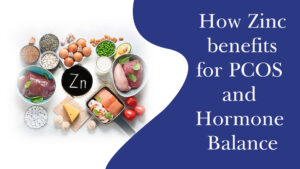
If you’ve ever been pregnant, you’re probably familiar with prenatal vitamins. These vitamins are specifically formulated for those who are expecting. “Prenatal vitamins are supplements that contain daily vitamins and minerals that are important for individuals to consume prior to conception and throughout pregnancy and postpartum,” says a nurse practitioner.
Most brands contain higher levels of vitamin B9 (folate/folic acid), iron, calcium, iodine, and DHA than traditional daily vitamins. This is because these ingredients, in particular, help both the parent and the fetus stay healthy and can help to prevent certain birth defects.
It’s important to start taking prenatal vitamins as soon as you find out you are pregnant, but ideally well before you conceive. Here, learn all about when and how to choose a prenatal vitamin that will keep you and your baby as healthy as can be.
When to Start Taking a Prenatal Vitamin
If you’re thinking about getting pregnant within the next year, it’s a great idea to do your research and find a high-quality prenatal vitamin to start as soon as possible.
“Take them right now,” says Dr. Mamta Pattanayak an OB/GYN specializing in women’s health. “I recommend prenatal vitamins to all my reproductive-aged women, whether or not making a baby is a current goal.”
Not only does taking a prenatal vitamin before you start trying to conceive help optimize your health, but it also gets you in the habit of taking the pill daily.
“The idea is to be optimally healthy prior to conception,” says Dr. Mamta. “From the moment of ovulation and fertilization, you want everything perfect. That requires getting an optimal array of nutrients into the body, in order to optimize hormones, control inflammation, nurture the gut microbiome, and promote and support the ability of cells to perform essential functions.”
Some healthcare providers recommend starting a prenatal vitamin three to six months prior to trying to conceive. Be sure to speak to your OB/GYN or primary care provider early and often so that they can recommend the best course of action for you.
If you haven’t started taking prenatal vitamins prior to learning you were pregnant, don’t panic. The vitamins that are typical in prenatal vitamins are also found in foods, so as long as your diet consists of a variety of fruits, vegetables, leafy greens, whole grains, and beans, your nutritional needs are likely at an adequate level. But do start a prenatal vitamin regimen as soon as possible.
“Many women only find out they are pregnant after they miss their period, which can be around four to six weeks of pregnancy,” says Dr. Mamta. “Once you find out you are pregnant, you should begin taking prenatal vitamins daily thereafter.”
“Remember, prenatal vitamins are supplements—they are to provide extra nutrients,” says Dr. Mamta. “No matter if you’re on or off of prenatal vitamins, eat lots of plants and some fatty fish, and hydrate well. Avoid added sugars and ultra-processed foods.”

Benefits of Prenatal Vitamins
Prenatal vitamins are important for your baby’s proper development. “The main purpose is to reduce neural tube defects—a type of very serious birth defect—in babies,” says Dr. Mamta.
Prenatal vitamins have also been shown to lower the risk of preterm labor, a low birth weight, and preeclampsia. “Other benefits are a better mood for the parent, stronger hair, detoxification, and blood production,” says Dr. Mamta.
They may help with morning sickness, too. “Studies have shown that women who take prenatal vitamins at least three months prior to conception experience less nausea in their first trimester of pregnancy,” says Santos.
Prenatal vitamins can be beneficial in the postpartum period, too. “Continuing the prenatal vitamin in postpartum and while breastfeeding is also advised to keep mom’s body well-nourished and able to produce nutrient-rich breastmilk,”.
How to Pick a Prenatal Vitamin
Most brands of prenatal vitamins will be safe to take, but do note that like all supplements, prenatal vitamins are not regulated. When choosing, there are some key things to look for on the label.
“Most prenatal vitamins contain all the necessary vitamins and minerals needed for a healthy pregnancy,” says Santos. However, it’s always a good idea to ensure that the prenatal vitamin you are choosing has certain essential supplements, starting with folic acid.
Dr. Mamta Pattanayak says your vitamin should contain 400 mcg of folic acid, but you should talk to your provider about this, as different conditions call for an increase in the amount of folic acid, such as a history of neural tube defects.
Iron is another important ingredient. “Calcium inhibits the absorption of iron, so you’ll notice that if your vitamin has adequate iron, it will likely have very little calcium,” says Dr. Mamta. “For this reason, if there is a concern about calcium in the diet, you can take a calcium supplement. Be sure to take it at a different time of day (at least two hours apart) than you take the other vitamin,” she notes.
What to Do If Your Prenatal Vitamin Makes You Nauseous
Unfortunately, prenatal vitamins, which are so crucial to a developing baby, can also be a hard pill to swallow—literally.
“Prenatal vitamins can cause varying degrees of nausea in certain individuals,” says Dr. Mamta. “More often than not, the culprit tends to be iron. The recommended dose of iron in pregnancy is 27 mg per day, so be sure to check the label on your prenatal vitamins to make sure there is not a higher dose in the pill.”
Dr. Mamta recommends trying to take your prenatal vitamin at night, when nausea tends to be lower.
It may take some trial and error to find a time that won’t upset your stomach. “Try taking them with dinner or even at bedtime, hydrate well when taking them. Try with food. Try without. Just keep trying!”
A Word From Experts
Taking a prenatal vitamin is important for both the pregnant person and the developing baby. It can help prevent birth defects and replenish nutrients lost during pregnancy and the postpartum period. Many experts recommend taking prenatal vitamins before or when you start trying to conceive. If you haven’t taken any before learning you are pregnant, it is a great idea to start now. Be sure to speak with your OB/GYN or midwife if you have any additional questions about prenatal vitamins.
Need help?
For any guidance or counselling you can reach out Dr. Mamta Pattnayak- Obstetrician and Gynecologist
https://goo.gl/maps/hTeJsyEypCxHBm3x7

